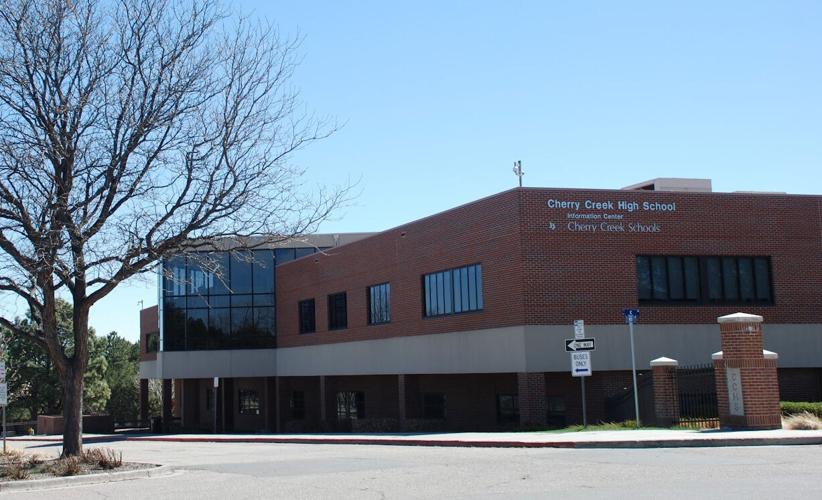Cherry Creek Schools abused public’s trust | Michael A. Hancock
There are moments when bureaucratic incompetence becomes indistinguishable from deceit. The Cherry Creek School District has delivered just such a moment — and the public deserves to understand the scale of what’s been done in their name and with their money.
In 2020, voters approved a $150 million bond measure based on clear, sentiment-driven commitments. One of the crown jewels of that proposal was a Mental Health Day Treatment Facility (MHD) — a specialized center designed to support students in acute psychiatric distress, particularly those returning from 72-hour mental health holds. It was a good idea. It met a rising need. And it passed on the strength of voters’ trust.
That trust has now been abused.
The district did not build a Mental Health Day Treatment Facility. It built something else entirely — a lower-tier program called an Intensive Outpatient Program (IOP). To the untrained ear, the distinction might seem semantic. It is not. The difference between an MHD and an IOP is the difference between a trauma hospital and a walk-in clinic. An MHD offers full-day care and clinical psychiatric support and serves all eligible youth regardless of district boundaries. An IOP offers a few hours of group therapy a few days a week. It is a supplement, not a solution.
Crucially, several IOPs are already operating in the metro area. They exist, have capacity, and did not require $150 million in taxpayer funding to materialize.
So why did Cherry Creek abandon its central promise? The answer is as revealing as it is disturbing. The district never secured — and never could secure — the proper state license for an MHD. This wasn’t a surprise. It wasn’t a matter of a regulation shifting after the fact. The licensing requirements were knowable, clear, and public. Yet, despite the district having a medical advisory board, a chief medical officer and internal legal counsel, no one seemed to grasp that what they promised was beyond their authority to deliver.
Or worse—they did know and moved forward anyway.
Evidence for the latter possibility is mounting. Cherry Creek’s request for proposals required potential partners to hold a day treatment license — suggesting they were aware of the legal threshold. Children’s Hospital, originally slated to be a partner in the project, pulled out when it became clear the district couldn’t meet those standards. And yet, as late as 2022, the district was still lobbying 6th Congressional District U.S. Rep. Jason Crow for $1.5 million in federal funds — under the banner of building a “first-of-its-kind” MHD. That money was granted. However, the facility that resulted was not what was promised. Not to voters. Not to the congressman. Not to the students.
This is not just a case of over promising and under-delivering. It’s a case of knowingly selling the public fiction, rebranding the failure, and hoping no one would notice.
Meanwhile, the damage goes beyond dollars and definitions. To make room for the now-downgraded Traverse program, the district dismantled Joliet — a high-needs alternative school that served vulnerable students. Those young people were sent back to traditional schools that often lacked the capacity to support them. Traverse, for its part, serves only 20 to 25 students at a time, far short of the 48 to 60 originally projected. The annual cost? $3 million. That’s roughly $15,000 per student — a staggering sum for a program not licensed to deliver medical care.
If this were the only fiscal misstep, one could chalk it up to a single failed initiative. But it’s not. At the same time, the district has moved forward with plans to build a soccer stadium, nine new fields, and a new food warehouse — despite declining enrollment. It is preparing to demolish and rebuild administrative facilities that were just renovated. It has even admitted that it will take three separate bond measures to complete construction at Cherry Creek High School — a slow-motion shell game with public funds.
There’s a word for this: mismanagement. And another: betrayal.
The district continues to boast a motto of “Promises Made, Promises Kept.” But slogans are not substitutes for substance. The promise made to the voters of Cherry Creek was a facility that could meet students in moments of genuine psychiatric crisis and walk with them toward recovery. That promise has not been kept. What has been kept is the funding, the fanfare, and the illusion of success.
We are not dealing here with a mere policy disagreement. Administrative evasion and lack of transparency erode public trust.
To the bureaucrats and board members at CCSD: This isn’t about headlines or legacy. It’s about honesty. Admit what happened. Stop spinning. Re-engage the public you serve. And above all, do what should have been done from the beginning: Tell the truth.
Because until you do, the stain of this broken promise will not fade.
Michael A. Hancock is a retired high-tech business executive and a Coloradan since 1973. Originally from Texas, he is a musician, composer, software engineer and U.S. Air Force veteran whose wide-ranging interests — from science and religion to politics, the arts and philosophy — shape his perspective on culture, innovation and what it means to be a Coloradan.
Michael A. Hancock is a retired high-tech business executive and a Coloradan since 1973. Originally from Texas, he is a musician, composer, software engineer and U.S. Air Force veteran whose wide-ranging interests — from science and religion to politics, the arts and philosophy — shape his perspective on culture, innovation and what it means to be a Coloradan.
















